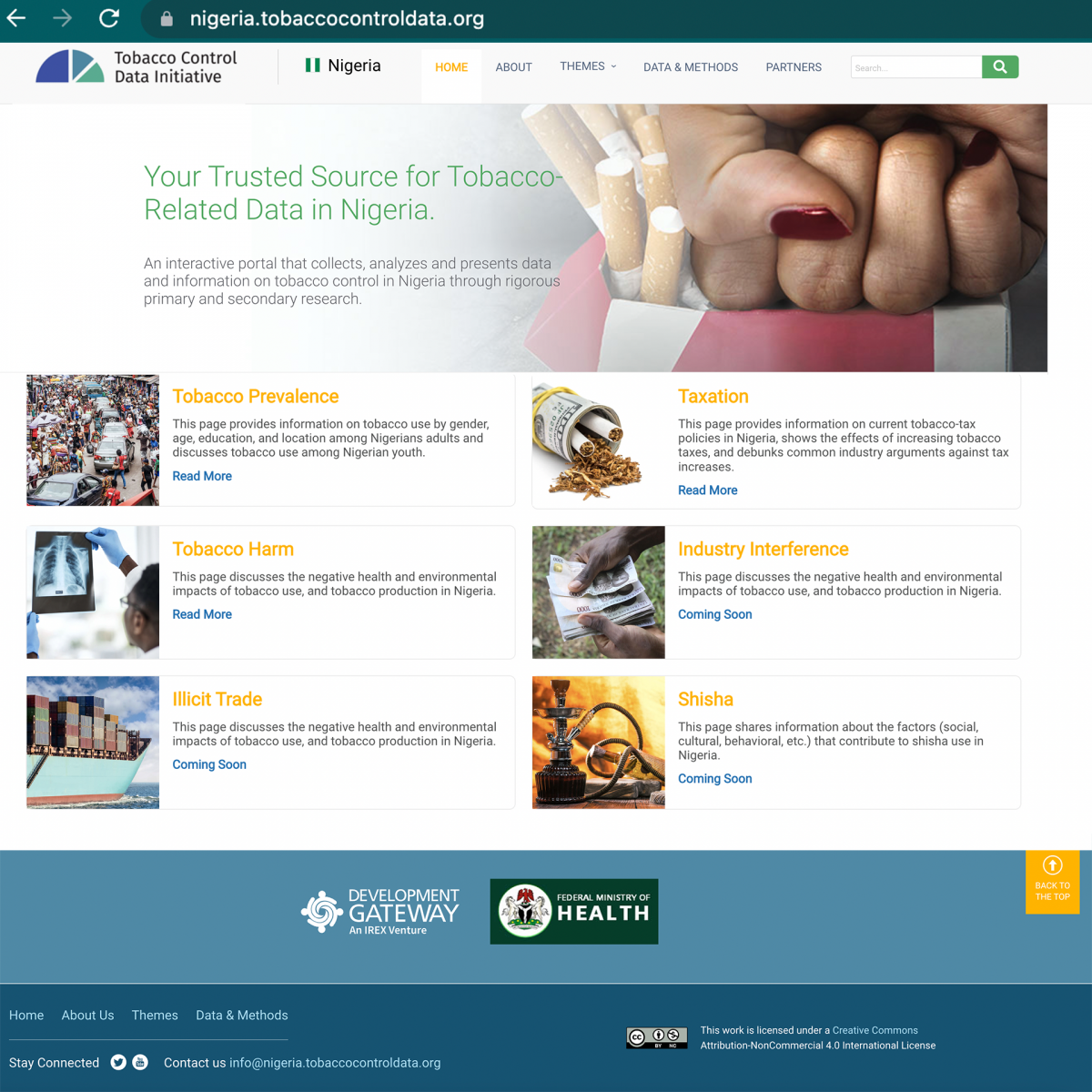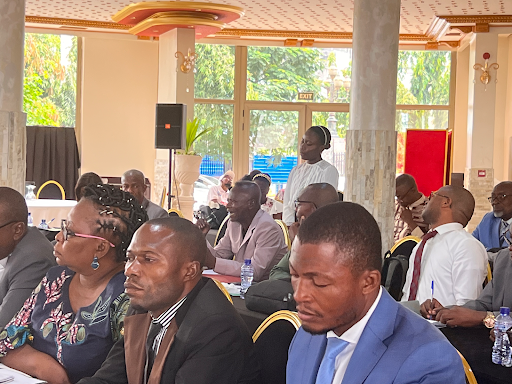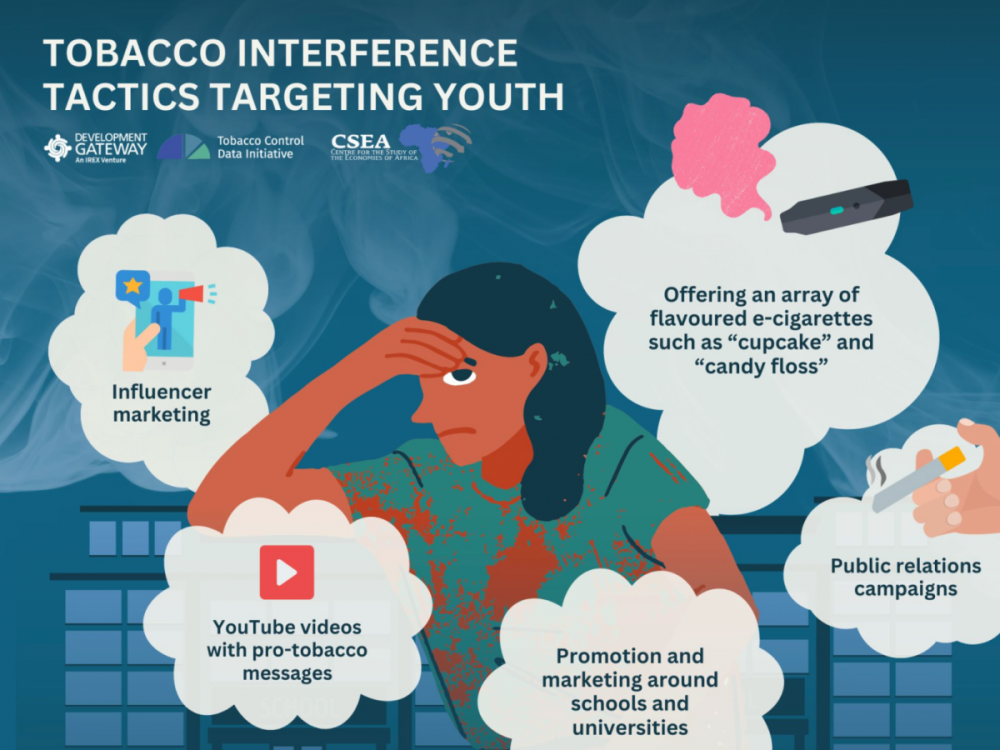Advancing Tobacco Control in Nigeria: The TCDI Website
In response to the impending threat of increased tobacco use in Nigeria and the various dangers that accompany it, the Tobacco Control Data Initiative Website creates a “one-stop-shop” to access the relevant data that Nigeria’s policymakers need to advance tobacco control legislation.
28 June, Abuja, Nigeria – Since 2019, Development Gateway (DG) has collaborated with University of Cape Town’s Research Unit on the Economics of Excisable Products (REEP) to address barriers to data use in tobacco control by consolidating available and trusted tobacco control data, identifying and filling data gaps, and creating an online resource for policymakers to access the relevant data needed to pass and monitor tobacco control legislation. These findings have come together through the Tobacco Control Data Initiative (TCDI), which is supported in partnership with the Bill & Melinda Gates Foundation and implemented in Nigeria in addition to South Africa, Kenya, Ethiopia, Zambia, and the Democratic Republic of the Congo.

Why TCDI?
At least 16,100 Nigerians die annually because of illnesses linked to tobacco use. 3.2 million Nigerians between the ages of 15 and 49 used tobacco in 2018; and about 200,000 tobacco users are women (NDHS, 2018). While tobacco consumption globally is decreasing, by 2030 the number of smokers in Africa is anticipated to rise by nearly 40% from 2010 levels. This is the largest expected increase in the world; particularly alarming when juxtaposed with the fact that Nigeria is a tobacco production hub and was the third largest exporter of cigarettes in 2018 (Africa’s Tobacco Epidemic, Tobacco Tactics, 2020). Even though there seems to be a downward trend of tobacco use in Nigeria, the World Health Organization (WHO) warns this should not cause complacency in tobacco control efforts as studies show that the tobacco industry is ramping up efforts in Africa to attract new smokers, especially among the predominantly young population. Strong tobacco control measures are needed to ensure that smoking rates do not increase.
Certain legislative policies are proven to reduce the use of tobacco products. Through their research, the TCDI team identified common themes in the data landscape. These relate to concerns about data accuracy, comparability, timeliness, and accessibility. As a result, the TCDI team understands the data needs and gaps, has identified existing data, and developed the TCDI Nigeria website that enables decision-makers to use essential data to inform tobacco control policy more effectively.
Together, partners co-designed a publicly available website (https://nigeria.tobaccocontroldata.org/) that aims to address key decision-making needs. The website equips stakeholders in government, civil society, academia, and the general public with reliable and up-to-date evidence to promote tobacco control and public health. It draws on both primary and secondary data sources and presents tobacco control information in user-friendly formats such as graphs, infographics, myths and facts, and success stories. The website will feature six themes: tobacco prevalence, tobacco harm, illicit trade, taxation, industry interference, and shisha use. The website will be updated with new information as this becomes available over the course of the program.
The Development Process
Before creating the TCDI Nigeria website, the TCDI team assessed the existing data and stakeholder needs through hour-long interviews with key members of the tobacco control community. The learnings from the assessment were validated with stakeholders during a workshop in November 2020 before technical development was started in early 2021. The website was created through an agile, co-design process in close consultation with key tobacco control stakeholders in Nigeria, including the Federal Ministry of Health; Nigerian Tobacco Research Group, Federal Revenue Inland Services. (Find the full list of our stakeholders and partners here.) Initial mockups and website designs were shared back with stakeholders for their input and suggestions. As a final step before launching the site, a last validation workshop with stakeholders was led by the Federal Ministry of Health in March 2022. The Federal Ministry of Health approved the finalized website prior to launch in May 2022.
About the Partners
Development Gateway: An IREX Venture (DG)
Development Gateway provides data and digital solutions for international development. DG creates tools that help institutions collect and analyze information; strengthen the institutional capacity to use data; and explore what processes are needed to enable evidence-based decisions. A mission-driven nonprofit since 2000 with staff based in five global hubs and around the world, DG supports the use of data, technology, and evidence to create more effective, open, and engaging institutions. More at www.developmentgateway.org.
Federal Ministry of Health, Nigeria (FMOH)
The Federal Ministry of Health is concerned with the formulation and implementation of policies related to health with the mandate of providing quality stewardship and services for the health of all Nigerians. Its vision and mission as a world-class government institution is to ensure a healthy Nigeria to develop and implement policies that strengthen the national health system for effective, efficient, accessible and affordable delivery of health services in partnership with other stakeholders. More at www.health.gov.ng.
University of Cape Town’s Research Unit on the Economics of Excisable Products (REEP)
REEP focuses its research on economic aspects related to a variety of excisable products, including tobacco, through its Economics of Tobacco Control Programme, which aims to enhance the knowledge of economic and tax issues among tobacco control advocates and policymakers, and to strengthen support for tobacco tax and price increases in low- and middle-income countries.
Share
Related Posts

The Cancer-Tobacco Link: Using Data to Drive Stronger Tobacco Control Policies
As we observe World Cancer Day today, it is crucial to recognize the significant role smoking plays in the global cancer epidemic. Tobacco use is the leading preventable cause of cancer and cancer-related deaths worldwide, necessitating a dynamic, multidisciplinary approach to tobacco control interventions. DG’s Tobacco Control Data Initiative (TCDI) contains country-specific websites designed to

Stakeholder, Where Art Thou?: Three Insights on Using Governance Structures to Foster Stakeholder Engagement
Through our Tobacco Control Data Initiative (TCDI) program and its sister program Data on Youth and Tobacco in Africa (DaYTA), we have learned that creating governance structures, such as advisory boards or steering committees, is one approach to ensuring that digital solutions appropriately meet stakeholders’ needs and foster future stakeholder engagement. In this blog, we explore three insights on how governance structures can advance buy-in with individual stakeholders while connecting them to one another.

Raising Awareness on World No Tobacco Day 2024: DaYTA/TCDI’s Work on Tobacco Industry Interference
As tobacco companies have aggressively deployed creative strategies to market retail nicotine and tobacco products at children and adolescents, it is imperative that tobacco control stakeholders have access to timely and high-quality data to inform robust policies, regulations, and enforcement mechanisms.